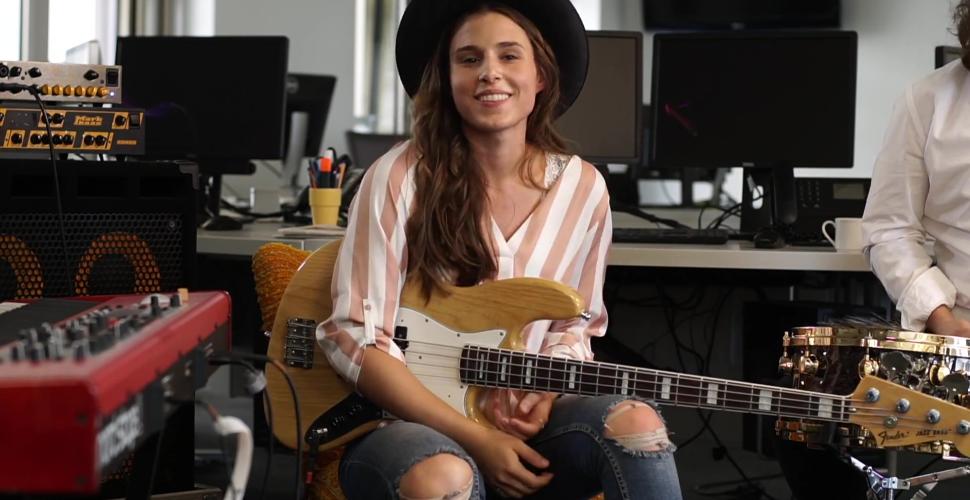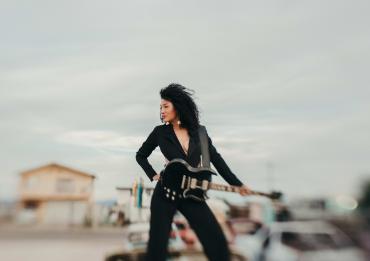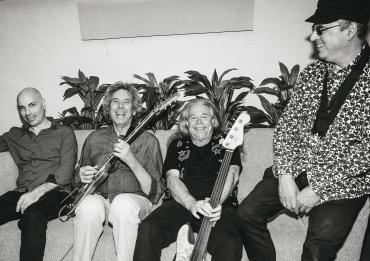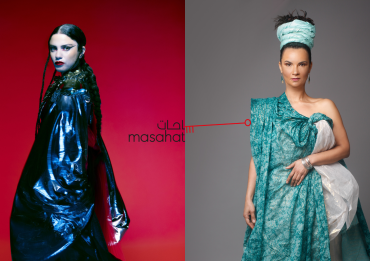Menu
Close
Kinga Głyk on the predominance of men in the music industry | - I'm happy to support women and be part of breaking these stereotypes

Bilder av
Cosmopolite
Innleggsdato
02/28/2024
Kinga Głyk on the predominance of men in the music industry | - I'm happy to support women and be part of breaking these stereotypes
- Marcus Miller is a great friend of Cosmopolite and has played here several times. In fact, he refuses to play at any other venue in Oslo, because he is such a fan of Cosmopolite. How was your experience playing with him, and what did you learn?
- It's awesome that he really likes Cosmopolite. Hearing this makes me even more excited about going there. Playing with Marcus was super special for me - full of excitement and a big challenge. I'm thankful he agreed to play with me. It's interesting that we didn't get to practice or meet before the performance. When I stepped on stage, it was our first-time meeting. I was nervous and emotional, but I knew this might be a once-in-a-lifetime thing. You know Marcus better than I do! We only spent a few minutes on stage together, but I have a lot of respect for him and love his music. I was so happy to perform and improvise with him. He did not seem afraid of it at all, which I admire a lot. He knew how to lead, no matter what I did. He was confident and kept everything together, making it a great experience.
- You became a band leader at a young age. What have you learned about yourself as you became a leader?
- Being a leader, especially a good one, is not an easy role. I got the opportunity to take on more responsibilities for my band at an early stage, and it's really helping me become more confident and aware of my opinions and desires. Naturally, I'm an introvert, and sometimes I prefer to hide and avoid responsibilities. However, I also love the challenges that life brings. This experience is making me a better person. As a musician responsible not only for the music but also for the overall coordination, it motivates me to be consistent and work hard. I believe there's still a lot for me to learn about being a good leader, especially in the musical context. I want to understand how to lead people and bring out their best. It's crucial to recognize the importance of teamwork and how we all depend on each other. Also, learning to make people feel that things are under control even when facing challenges is essential. For me, it's an ongoing learning process, but it's very practical. Improvement comes through experience and being sensitive and curious about everything around us.
- You call bass “a masculine instrument” in Guitar World magazine – how has it shaped you as a person and a woman to access these low notes performed on the bass?
- Generally, people often describe the bass as a masculine instrument. Honestly, I'm not sure why this stereotype exists, but it might be because for a long time, it was mostly men playing the bass. Although things are changing now, it's still somewhat unusual to see a woman playing bass or drums. When you observe the music industry, you can still notice a predominance of men, which is interesting to realize. I'm happy to support women and be part of breaking these stereotypes. When I started playing as a kid, it felt very natural and normal to me. If people hadn't emphasized that it's not usual, I wouldn't have seen it that way. As a little girl, I didn't analyze it in this context.
- To Darkblue notes magazine you have stated: “All I create is deeply connected to my emotions and what I find beautiful in music.” You became famous very fast with your interpretation of “Tears In Heaven”. Do you think you could create this emotional interpretation partly because you are female?
- In my opinion, anyone can play beautifully and touch someone's heart, or we can all forget the reason for creating music and become like robots just playing notes. It doesn't matter which gender we are. While some might assume that being a woman makes me more sensitive, having lived on Earth for 27 years, I've observed a wide diversity of people. Some men are incredibly sensitive and emotional, while some women are not. I believe it depends more on our individual desires and the meaning we attach to what we do. Personally, I deeply care about the meaning behind what I present and play.
- What do you usually do on the 8th of march?
- Seeing this question made me realize that I don't make this day special, and I should change that. It doesn't have to be the whole day, but sometimes I find myself living day by day, not letting anything distract my work mode. However, more and more, I see the importance of making days special. I have to think how to make this show on the 8th special for other women.
See Kinga Głyk perform on the International Womens Day March 8th!





